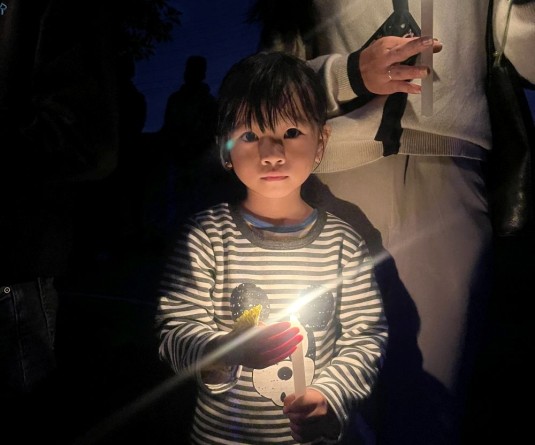
NSF commemorates 100 years of Naga Club
Our Correspondent
Kohima | October 31
The 100 years of Naga Club was commemorated today by the Naga Students’ Federation (NSF) at the Naga Solidarity Park, Kohima. Observing the day under the theme ‘Celebrating the Legacy’, the event was attended by over 3000 people comprising of students, well wishers, delegates from Burma, Manipur, Assam and Arunachal Pradesh.
Philippus Petrus Visser, United Nations’ Consultant for Peace Building & Dialogue graced the occasion as the honored guest while Tapan Bose, former secretary general, South Asia Program for Human Rights was the guest speaker. The celebration began with a traditional blessing which was pronounced by Naga elder Neisa Thol, former chairman, Japfiiphiki Pfutsana Krotho.
Acknowledging the presence of many Nagas tribes from beyond the borders, Neingulo Krome, Convenor of the organising committee in his keynote address reaffirmed the pledge of Naga ancestors stating, “Today as we join our hearts and soul to reaffirm the pledge of our ancestors, we re-iterate that the land of the Nagas straddles across the boundary lines which the British without consulting the Nagas drew to demarcate the territories of India and Burma (Myanmar).
This imaginary lines runs through the middle of villages and even houses. However we are all here cutting across national and international boundaries representing all these geographical regions in manifestation of what our ancestors and pioneers of the Naga Club stood for since a 100 years ago and that will be so for all times to come.”
Despite the many challenges that Naga society faces today, amidst unceasing internal contradictions which mar Naga society, Krome believed that the ancestors who laid the foundation of the Naga nationhood must have acknowledged ‘the gathering with affection as we equally embrace their blessings upon us’.
A few significant presentations in the celebration was the folk dance performed by the Makury Nagas from Burma who took almost 24 hours in reaching Kohima for the celebration where they also walked for over six hours to reach a particular area in their journey. In their ‘Epic tales of struggle and suffering’, Southern Nagas from Manipur performed a re-enactment of the Oinam incident of 1987 where villagers were killed and tortured for months by the Indian Army.
Sharing his journey with the Nagas, guest speaker Tapan Bose mentioned that his journey began in the 1970s during the formation of the Naga Peoples’ Movement for Human Rights (NPMHR). It was the NPMHR members who brought him to the Naga Hills (South Naga areas and Eastern Naga lands) where he got to see the impact and sufferings of the Nagas first hand. “I saw what the Indian State had done to a very proud and very cultured people.
They were fighting for their rights of self determination and self-respect, their right to life and to continue to live in peace in the way they have over the centuries,” said Bose.
Bose also observed that Nagas are no longer talking about being separate from India, but talking about being a part of a shared sovereignty with India. “The concept of shared sovereignty which our Prime Minister talked about is a ‘facade statement. The issue of shared sovereignty has to be concretised in terms of laws, in terms of Constitution alignment, in terms of protection, said Bose.
The most critical issue today is the issue of integration, viewed Bose while acknowledging that Nagas are a very diverse community.
“The whole argument about Nagas are not united is a false argument. Is India united? People have the right to retain their identity. India keeps talking about unity in diversity. There is unity in diversity among the Nagas so why don’t you recognise and give up the whole debate of unity. It is actually a ploy because constantly harping on the question of unity; they keep on dividing the Naga people.
By constantly harping on the issue of integration and inclusion, they keep on dividing the people and they will decide on who they will talk to and who they will not talk to,” claimed Bose adding that these are the ploys the Indian government is using to divide the Nagas.
Bose also viewed that the talk of unity is not that important and the negotiations and the dialogues has also revealed that ‘the future is not in being a united homogenous Naga nation’.
“The future is in a diversified cultural unity of the Naga people where every Naga community is able to equally participate in a political system that respects them and where they respect each other. That very concept was inherent in the Federal government of Nagaland. And that is something to subscribe for. We must think in terms of how to come together without having to call for this false call of unity and create a more balanced open federal culture of politics, society and live together as sisters and brothers,” concluded Bose.




